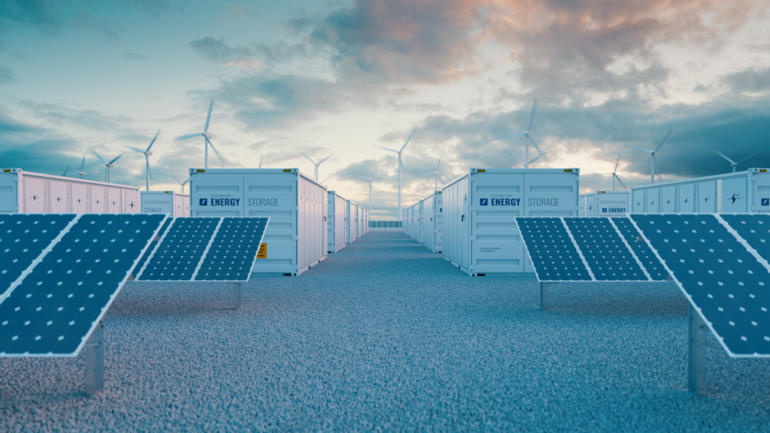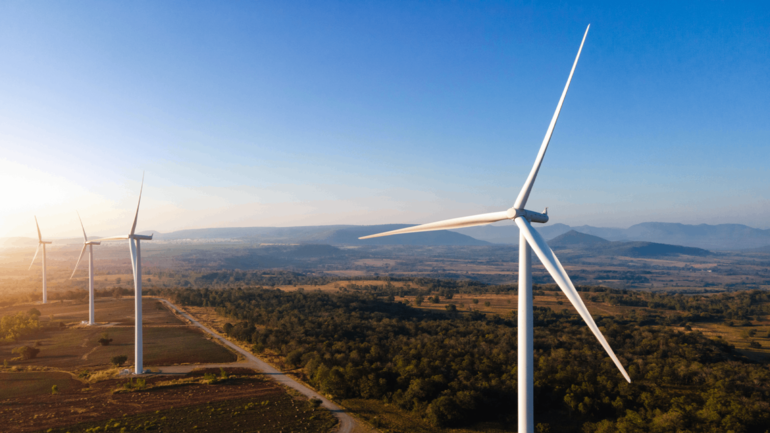Geneva, 6 July 2020: The World Business Council for Sustainable Development (WBCSD) released its latest guidelines to help energy consumers develop and implement a sustainable energy strategy for their business. Our guidelines support companies to rethink how they source and consume energy within their business and across their value chain and expand their opportunities to use or invest in commercially viable low-carbon energy solutions in collaboration with partners.
The COVID-19 crisis has highlighted the fragility of supply chains and the urgent need for business to work with its upstream and downstream stakeholders to build resilience – especially in the face of ever-growing climate risks. All companies need to align their business strategy with achieving the 1.5°C pathway laid out by the Paris Agreement and enact robust plans to achieve it. Companies who are successful in implementing ambitious climate action programs will mitigate risks across their operations and supply chains, retain their license to operate in a decarbonizing economy and support the achievement of the SDGs.
Driven by new technologies and business models – and the mounting urgency to address climate change – the energy system is transitioning to become decarbonized, decentralized and interconnected. Companies who want to maximize opportunities from the energy transition need to take an integrated approach to managing and sourcing their energy use: involving all relevant internal functions and engaging customers, suppliers and local stakeholders. WBCSD’s guidelines provide companies with a roadmap to work with different business functions and value chains to identify, implement and scale new technologies, business models and financing mechanisms that can save energy, costs and carbon.
Collaboration is key to driving effective, sustainable climate action across any company. WBCSD’s latest additions to the guidelines on low-carbon energy sourcing and energy efficiency explain how companies can work cross-functionally and collaboratively with their energy related value chains to drive energy efficiency and source sustainable energy for all end-uses: electricity, heating and cooling – within buildings and industrial processes – and transportation.
The guidelines were developed by WBCSD, together with its members including Inka Group, BT and Saint Gobain, and in partnership with Carbon Intelligence. They explain the six key elements vital for companies to build an effective energy management and sourcing strategy; various approaches to reducing and decarbonizing their energy footprint; and business cases to showcase emerging technologies which companies can exploit– all while gaining competitive advantage and building resilience to climate change.
“Forward looking companies must rethink the role of energy in their business strategy and work with a broad range of stakeholders to capitalize on opportunities for their company offered by new technologies, business models and financing mechanisms” said Mariana Heinrich, Director, Energy, WBCSD.
“We all have a role to play in creating net-zero carbon economy. Striving to 100% renewable energy use across the value chain is one of the key actions to become climate positive IKEA by 2030. To make it happen as Ingka Group, we are investing in renewable energy generation onsite and offsite, working towards consuming 100% renewable electricity, heating and cooling in an efficient way, offering Home Solar, increasing zero-emissions deliveries and EV charging stations at our stores” explained Karol Gobczynski, Head of Climate & Energy, Ingka Group (IKEA).
“BT is a longstanding champion on climate action. We have pledged to become a net zero carbon emissions business by 2045 and are exploring ways of investing in low carbon heating and cooling technologies to help us reach our goal. This is in addition to the 100% renewable electricity we purchase in the UK today. We welcome the WBCSD guidance, which provides clear examples of how businesses can collaborate with their value chain to take significant steps in tackling carbon emissions. By working together, we have a real chance to create a more sustainable, resilient and low carbon economy.” – Penelope Guarnay, Carbon Programme Manager, BT
“Having set a goal to achieve carbon neutrality by 2050, Saint Gobain is exploring a variety of ways to decarbonize its operations. WBCSD’s guidance on integrated energy strategies provides direction on how to collaborate with our value chain partners, and concrete examples in areas that are relevant to Saint Gobain, such as energy efficiency, low-carbon electricity and transport.” – Nicolas Baglin, Corporate Environment Manager, Saint Gobain
"The guidelines for an integrated energy strategy explain the six capabilities that leading companies must develop to generate business value from the energy transition. The companies that are performing well in these areas and working collaboratively with value chain partners are more likely to achieve their energy efficiency and carbon reduction goals." – Richard Tarboton, Director of Strategic Services, Carbon Intelligence
WBCSD’s first iteration of these guidelines was published in mid-2019 outlining the six capabilities key to developing an integrated energy strategy. Subsequently we have added guidance on energy efficiency and low-carbon energy sourcing across the value chain, as well as nine business cases on low carbon energy solutions. To reinforce understanding and support implementation of these guidelines within companies, WBCSD is developing a workshop series to show how sustainability, procurement, finance and operational teams can jointly develop an ambitious energy strategy in line with their strategic priorities.








